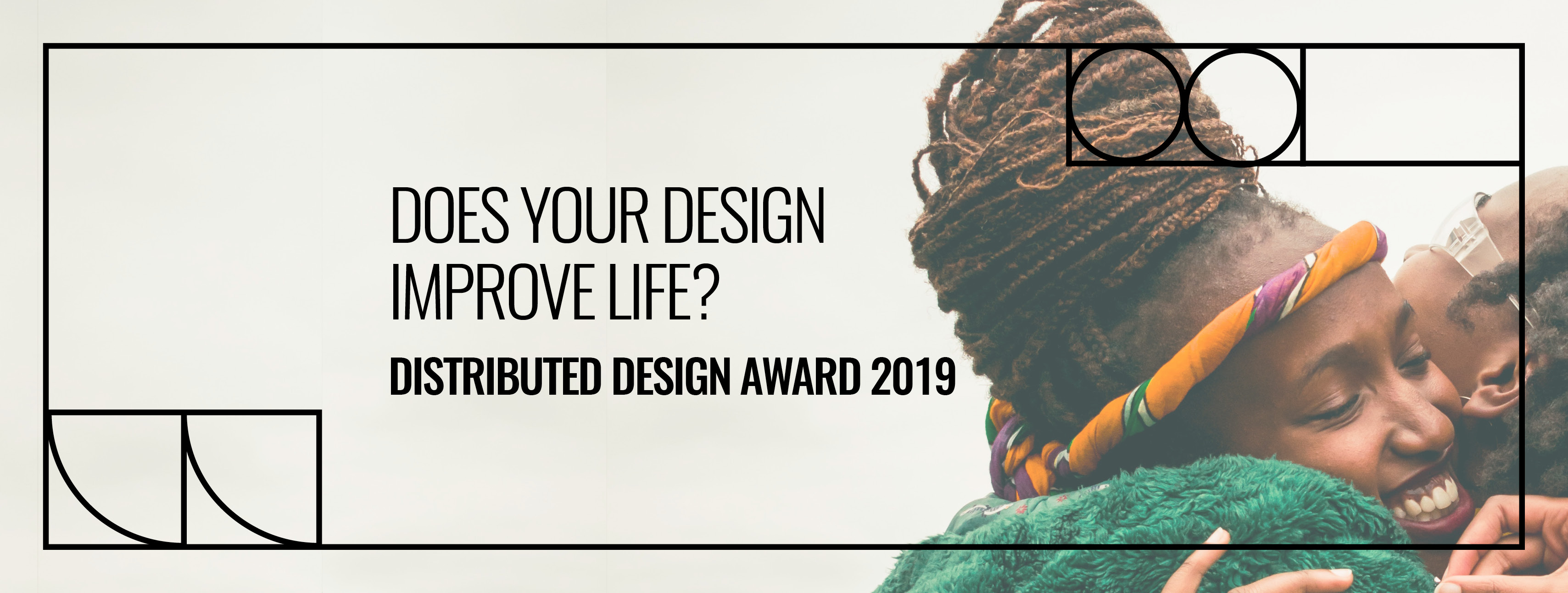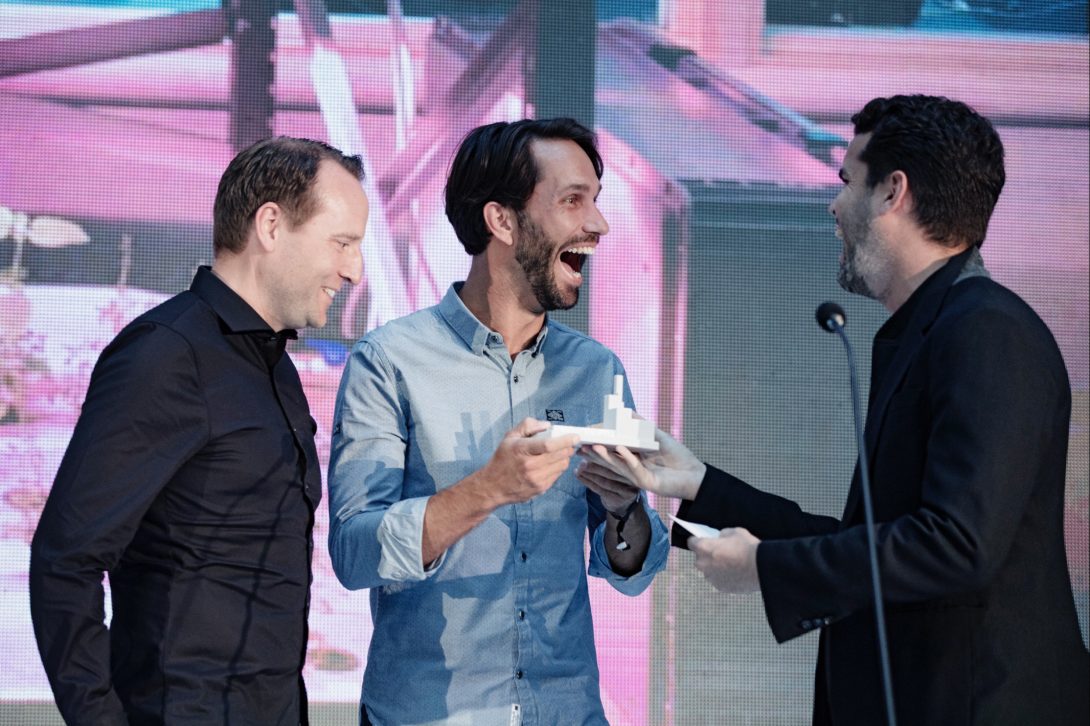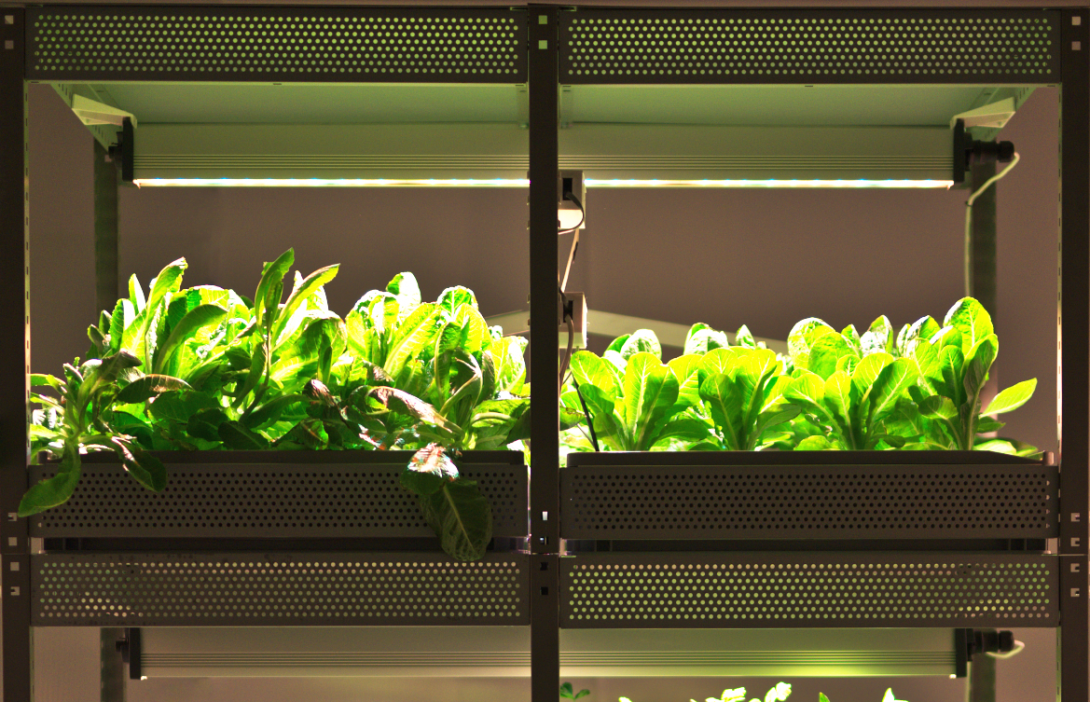Blog
Distributed Design Market Platform is partnering with
INDEX: Award for the 2019 Distributed Design Award.
Nominations are now open for the 2019 Distributed Design Award, a partnership between Distributed Design Market Platform (co-funded by the Creative Europe Programme of the European Union) and INDEX:Award. European makers and designers who have developed a design project affiliated with a Fab Lab are encouraged to apply from now until the closing date March 10, 2019. Projects can be nominated by clicking on the following link: INDEX: Award nomination portal.
Finalists and Winner
The finalists of the Distributed Design Award will be chosen from the nomination pool of INDEX: Awards. Nominations that are affiliated with a Fab Lab will be eligible to receive the Distributed Design acknowledgement. Three finalists will attend the We Make The City festival in Amsterdam to develop their ideas and projects within a dedicated environment. Entrants in the Distributed Design Award are also eligible to win an INDEX: Award which will be announced in September in Copenhagen. The winner of the DD award will win a scholarship to participate the Master in Design for Emergent Futures (MDEF), taught in Barcelona. Asking questions, with curiosity, and being creative in the finding of the solutions and design to improve life is at the heart of this programme
Applications are open
- Nominate the project through the online application portal.
- Nominate that your design comes from the DDMP.
- Choose the affiliated Fab Lab from a drop-down menu.

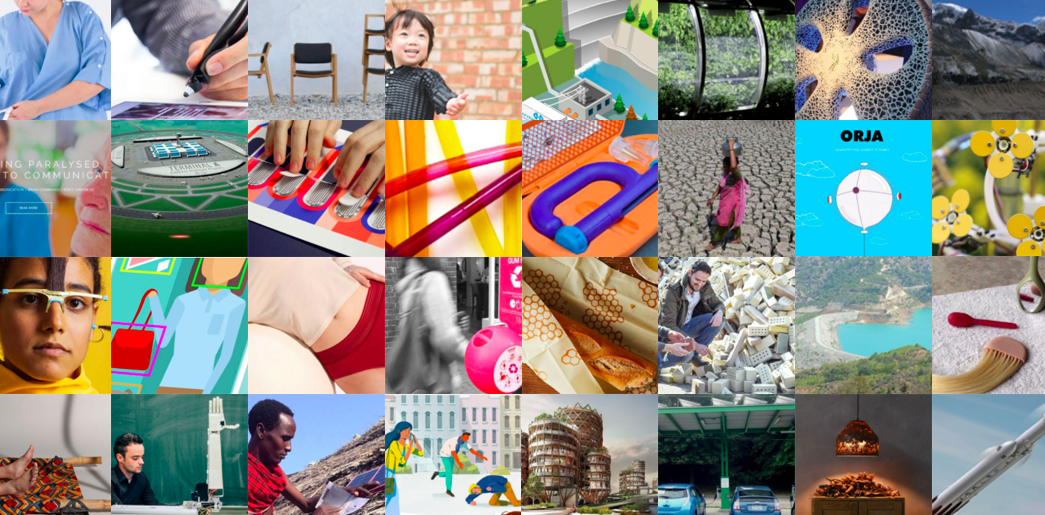
About INDEX: Award
INDEX: Design to Improve Life ® is a non-profit organization with unique design ambitions. Design is no longer just about fashion or furniture, it’s a powerful tool that can improve lives, solve challenges and help secure a more sustainable future. Their work is focused on design that benefits humanity – what they call ‘Design to Improve Life’. This ‘Design to Improve Life’ philosophy is our way of advancing the democratic and human-centered design traditions of Denmark.
INDEX: Award is the world’s largest design prize and widely recognized as one of the most important. It is awarded in five different categories: Body, Home, Work, Play; Learning and Community. Each of the five INDEX: Award winners receives €100,000. With a total prize sum of €500,000, the INDEX: Award is the world’s largest monetary design prize. INDEX: Award shares its core values with the Distributed Design Market Platform; it is the world’s first sustainable design prize. The finalists of the Distributed Design Award will be chosen from the nomination pool of INDEX: Awards. Nominations that are affiliated with a Fab Lab will be eligible to be chosen. Finalists in the DD Award are also eligible to win an INDEX: Award.
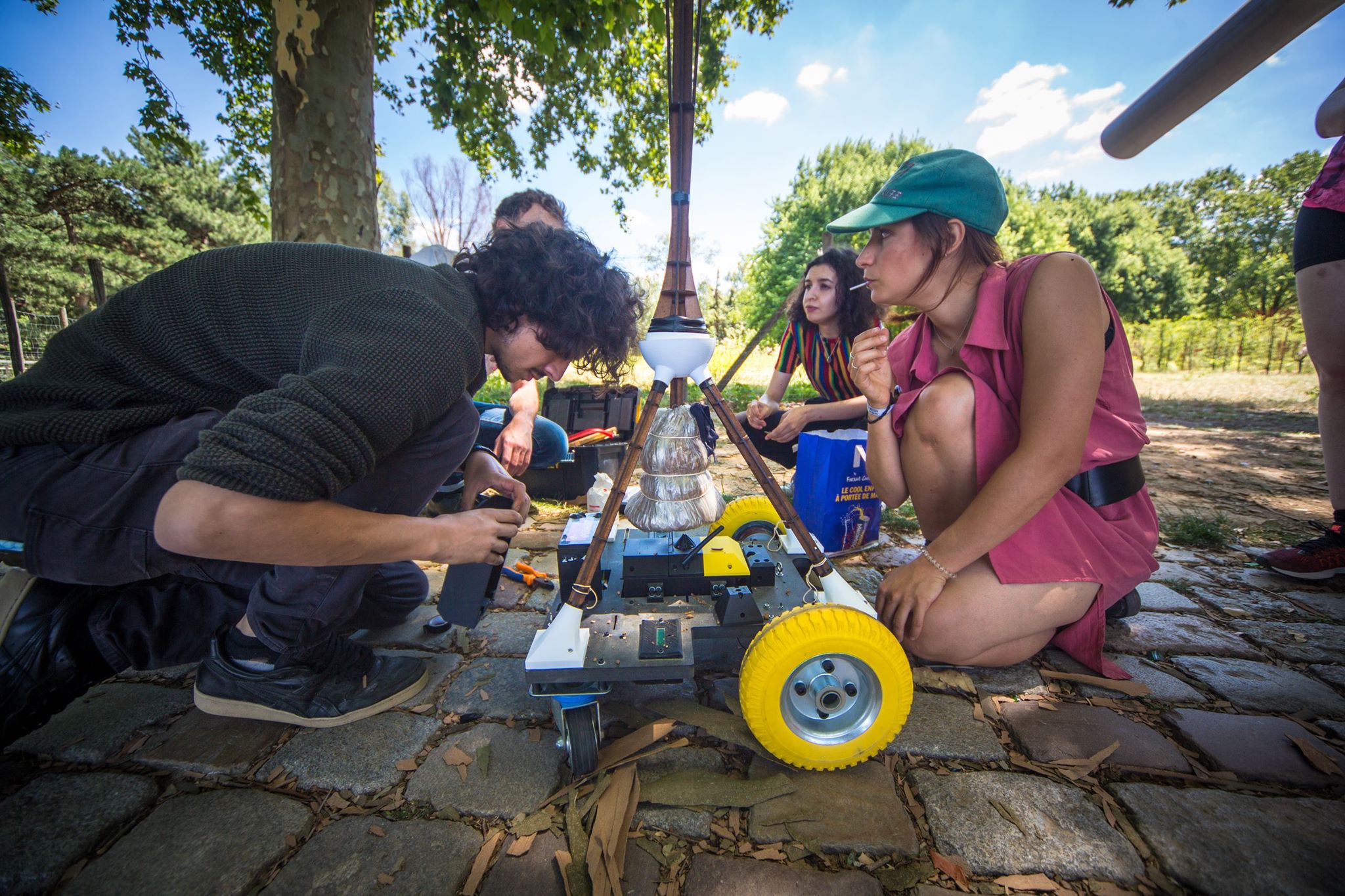
About the Distributed Design Award
Distributed Design is a new field emerging from the intersection of two global trends: the Maker Movement and the digitisation of the design discipline. This convergence has lead to the rise of a new market, in which creative individuals have access to digital tools that allow them to design, produce and fabricate products themselves and easily connect to a global network of tools and collaborators to undertake aspects of this process with them. Global networks may include Fab Labs, a global infrastructure of over 1,500 digital fabrication laboratories. Distributed Design can work to improve life, by lessening environmental and social impacts of the Globalisation of production. It can help solve challenges and help secure a more sustainable future.
The Distributed Design Market Platform acts as an exchange and networking hub for the global community arising from Distributed Design. The four-year Creative Europe project aims at developing and promoting the connection between designers, makers and the emerging market. The Distributed Design Award is for excellence achieved by emerging creatives in Distributed Design, who meet the award criteria. Finalists and winner will be decided by jury selection and will join a dedicated program at the We Make The City festival in Amsterdam in June.

About We Make the City – Amsterdam
WeMakeThe.City is a new international urban innovation festival, which had its first edition in 2018, celebrating urban living whilst addressing important urban issues in the metropolitan region of Amsterdam. All over the world cities are growing rapidly. This growth causes serious problems concerning, for instance, climate, safety, affordable housing, and health. The key question is: what kind of city do we want to live in, in five, ten or fifteen years time? How can we make our cities better? How do we make better cities? From June 17 to 23 2019, the second edition of WMTC will be organised. For seven days in a row, we will tackle urgent everyday challenges in the urban environment, together with audience and experts, spread across different locations in the Amsterdam metropolitan area. With lectures, film screenings, expositions, performances, urban expeditions, games, workshops, expert meetings, conversations, labs, makerspaces, and an attractive and active weekend programme for a large and wide audience. We will be searching for answers, together with you and many others. For Amsterdam, the metropolitan area, European cities and the rest of the world. Because together we make the city of the future.
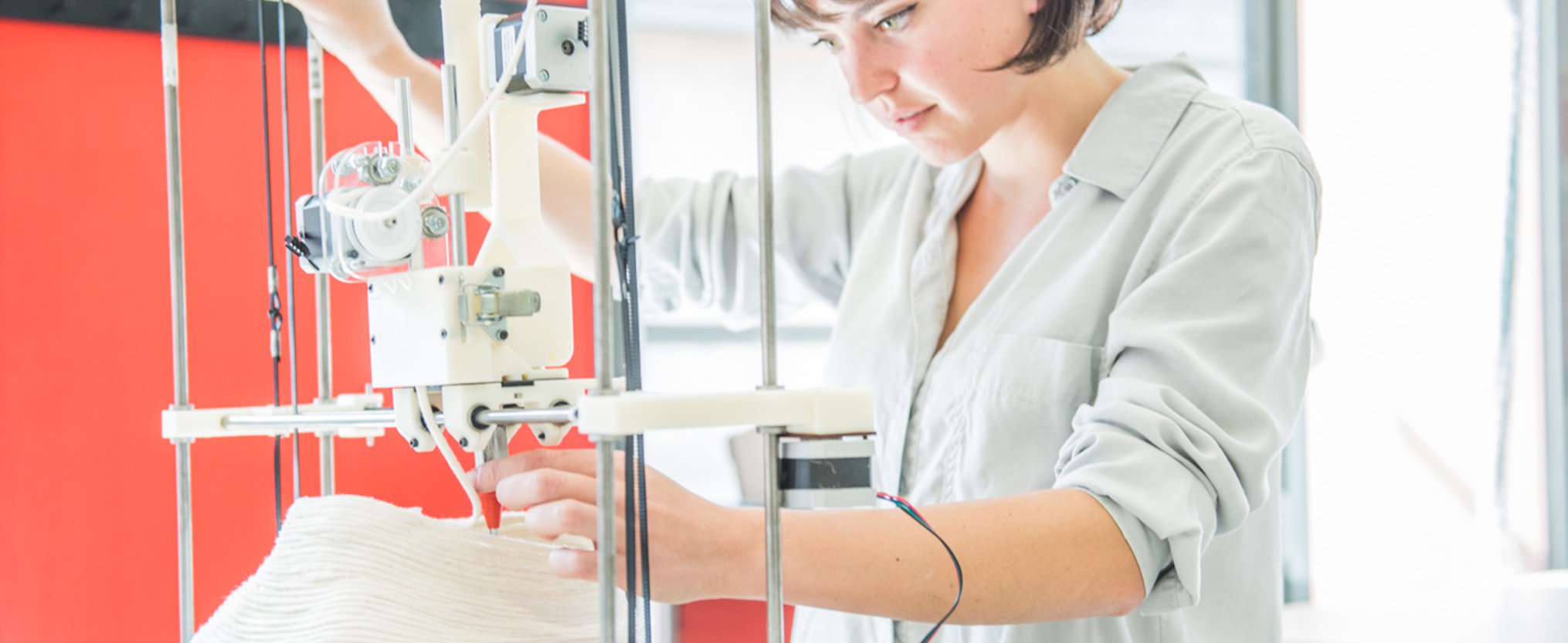
About the Master in Design for Emergent Futures
Creating a next generation design-and-making education programme, the Master in Design for Emergent Futures (MDEF) inspires, informs and critiques design interventions, harnessing the potential of advanced technologies. Digital fabrication, artificial intelligence, synthetic biology and blockchain aimed at addressing and ‘dissolving’ wicked problems, while contributing to learning outcomes, innovative designs, and positive social impact. The focus of this innovative programme is to look at the big challenges faced by humanity today in relation to climate change, sustainability, disenfranchisement and social exclusion through the lens of critical design, speculative design, and social innovation. Targeting people of all ages, the learning overall aim is to provide the strategic vision and tools for designers, sociologists, economists and computer scientists to become agents of change in multiple professional environments. In the context of the Fab Academy, the MDEF programme is an investigation on how a distributed and innovative initiatives (as the Fab Academy) connect with existing formal educational programmes (in universities worldwide).
The master starts in and takes place mainly at IAAC?—?Institute for Advanced Architecture of Catalonia, in Barcelona. Winner will be awarded with a full scholarship and transportation (arrival and departure).
Selection Criteria
To be eligible for the Distributed Design Award the maker or designer must:
- Make a nomination through the INDEX: Award portal
- have already produced and promoted a distributed design project that must reflect on some of the following aspects:
- DISTRIBUTABLE: the design can travel globally to be manufactured locally;
- Is the design accessible through digital platforms? Eg. through an online repository or online archive where files can be downloaded.
- How is the project already distributed in the world? How many times it has been downloaded, made, bought, assembled, forked.
- What is the distribution strategy? Is it produced in a central factory and shipped to the world?
- REPRODUCIBLE: the design takes local availability into account and is based on globally available materials and hardware;
- Does the product allow for customization?
- What is the strategy for supply chain and manufacture of the product? Is the production of the product close to to its final consumption?
- VALUABLE: the design creates value for people, companies, and/or society.
- Are there principles of circular economy in the product?
- Is it designed or developed by the use of extended intelligent tools?. E.g. Machine Learning or Parametric Design tools.
- What is the impact expected of the project? Is it trying to solve a specific issue?
Further, to be eligible for this award, it must be associated with a FabLab from the fablabs.io database. Meet here some of our Distributed Design emerging creatives.
